Is Online Privacy Possible?

Online personal data is alarming!
Privacy has become a valuable and elusive commodity. On the one hand, our private information is made available by others whether we like it or not. On the other hand, it’s our own fault as we overshare online. People seem to assume privacy is a lost cause, but that is a mistake! There are many things we can do to achieve online privacy!
To achieve an acceptable level of privacy, habits can be modified until they integrate subconsciously into daily routines. If you don’t know how much of your personal information is available, this won’t make much sense. Start by looking yourself up online. As you find your information, think about how it can negatively impact you or your family.
Know what personal information can be found online and understand your information is online whether you use social media or you don’t!
- Look yourself up in various ways every few months so you know what others can see about you and so you can deal with any problems you discover. Be aware if your identity can be confused with someone who shares your name. For example, you can do damage control in advance if you discover you’re easily confused with a criminal or unsavory person.
Remove your personal online information whenever possible
-
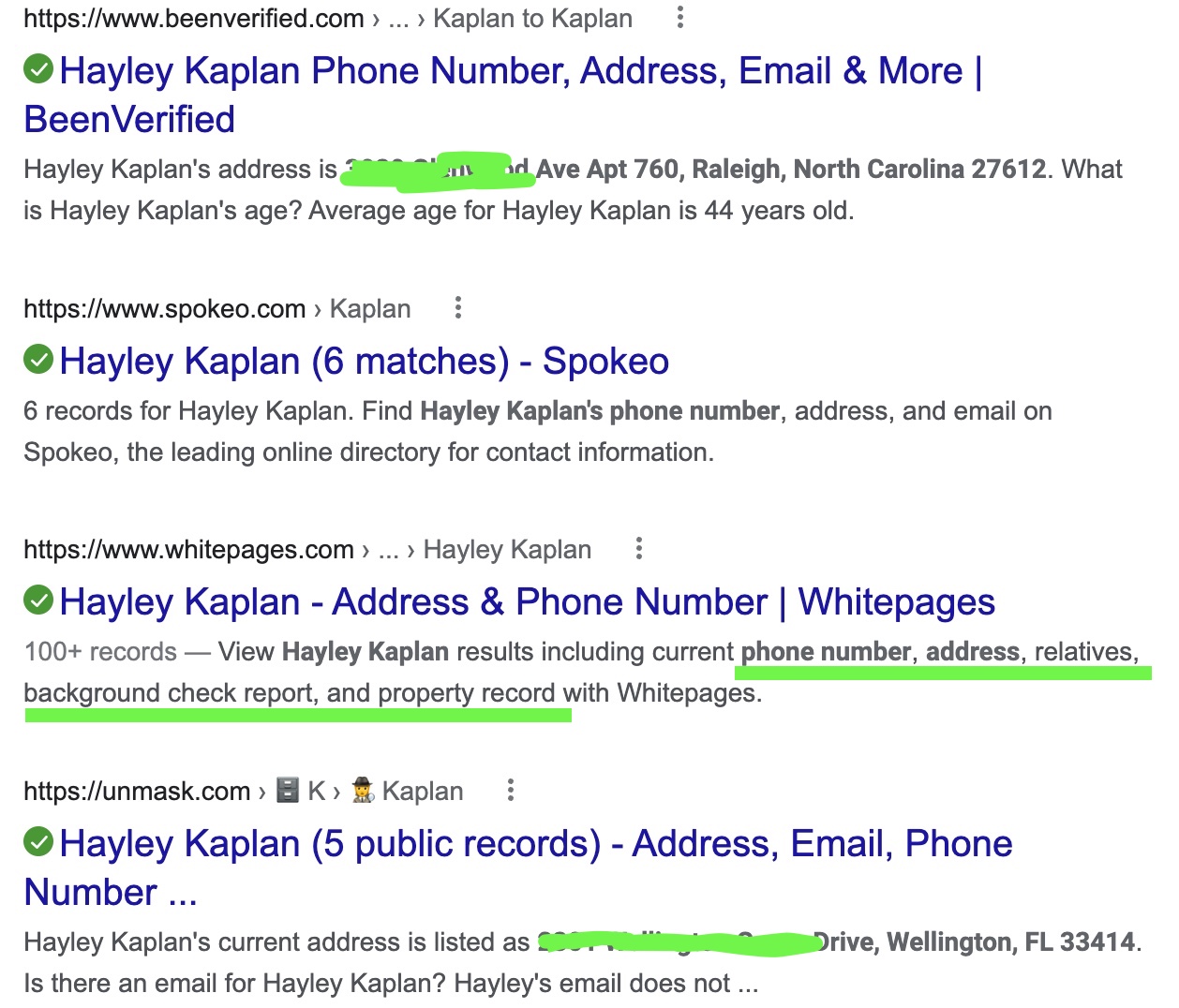
This is a teeny sample of what is easily found online
Some online information is not removable, but there are other options for dealing with problematic content. For example, a major newspaper is unlikely to remove a negative article but there are ways to push that article into a less prominent search result position.
- Data broker sites profit from sharing personal information obtained from public sources such as County’s Recorder Offices, official court records, social media and more. Opt out and remove yourself from as many sources of your personal information as possible. Click here for free tutorials for a few popular sites. (If you encounter a problem on any tutorial, please leave a comment following the tutorial and it will be promptly updated.)
- Buyer Beware! There are unreputable and dishonest businesses that offer data removal services and reputation assistance. Do your homework and explore reviews before hiring someone. Many paid services will yield limited success. Understand precisely what to expect from a paid removal service and then confirm the results rather than assuming the work was done correctly.
Do not overshare online or by email
- Do not share your birth year, home address, personal email address or anything else that is unnecessary for a others to find online.
- Be aware and considerate about the information you reveal online about others.
- Don’t inadvertently put your family and children at risk with posts and photos. For example, to protect young children, do not share the names of schools they attend.
- When wishing friends happy birthday, avoid reference to precise age. Keeping age private for vanity reasons is understandable but keeping it private to reduce chances of ageism or identity theft is wise.
- Get permission before sharing information about someone else or their events and activities. For example, parents may not want their newborn’s photos and birth information on social media. A couple may be unhappy with excited wedding guests who post photos of their occasion as it is happening. A host may want to avoid online photos of an event to avoid uninvited guests from feeling bad.
- Oversharing the wonderful (and terrible) moments in your life needlessly shares your private business with people who should not have that information. There are surprising ways people can use your own information against you. For example, a client became a victim of extortion after posting in various ways about his financial success.
- To guard your privacy, tighten up your privacy settings on all social media platforms, including Venmo, Amazon, Google and other search engines.
- Understand who your audience will be for each post. Know that misguided friends will share your personal online information and photos. They could also share content you send in an email and this can become a problem.
Do not give detailed personal information to your email providers – they will likely use your data and that may even be disclosed in their privacy policies
- Use a fake birthdate if you must provide one. Don’t be surprised if you find that incorrect date associated with you online.
- Don’t give your home address to your email provider.
- Leave optional fields blank.
Understand what you give up in exchange for benefits and consider rejecting those benefits (conveniences or free gifts) in the interest of your privacy
- Habits, behaviors and personal information are shared when you enter a sweepstakes or use a club card or a savings offer. Is the reward worth the privacy tradeoff?
- Free apps access abundant data in exchange for the benefit they provide. Pay attention to the permissions you grant your apps to determine if the value of what you get from the app is greater than your loss of privacy.
Do what it takes to restrict sharing of your personal information when given the opportunity
- Don’t worry about the details of privacy policies. Instead, skip to the toll free opt out number or the online opt out options and opt out of everything you can. Don’t procrastinate because sharing begins 30 days from the date the notice was sent.

Notice you can skip right down to the clearly marked “Limit our Sharing” portion of the privacy notice.
Limit sharing when opening new bank or credit card accounts or when setting up new leases
- Since most people don’t do this, it may cause some confusion but insist on it anyway.
Keep your home address private – use a work address (if appropriate) or P.O. Box when possible
- Do not provide your home address for political or charitable donations because many of them will list you as a supporter online and they’ll also include your address.
- Anytime you’re asked for your address, think about where that could lead to privacy problems for you. If you anticipate a problem, provide an alternate address.
When purchasing property, avoid using your name on Trust Deeds which reside in public records
- Contact an attorney well before purchasing a property to determine the best way to take title. In addition to privacy, there are usually estate planning benefits. Options differ from state to state and examples include: Blind Trust, LLC, Living Trust, Private Asset Trust, Private Trust, Land Trust, etc.
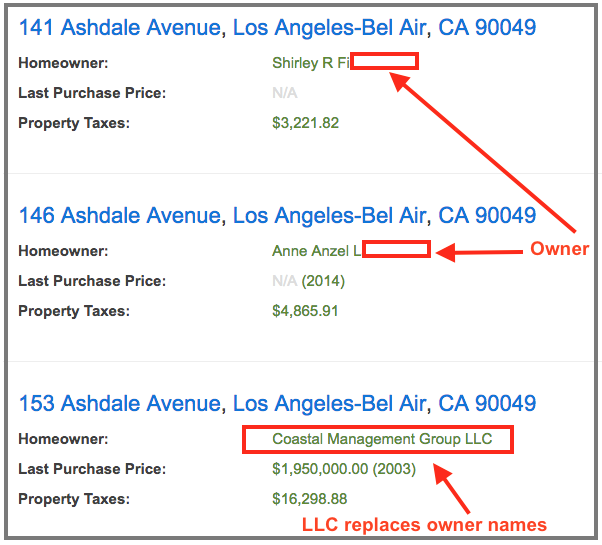
Avoid purchasing property in your name – it’s public information.
Because someone asks for personal information does not mean you need to provide it
- To reduce invasive and inconvenient identity theft, do not provide sensitive personal information such as your Social Security Number or mother’s maiden name unless you have no choice.
- Offer an alternative identification to utility companies, cell phone providers, landlords, property managers, doctors’ offices, hospitals, insurers, public schools, sports clubs and leagues. If they insist, and some will, you will need to make a judgment call as to how to proceed.
Achieving an acceptable level of privacy requires unlearning bad behaviors and thinking carefully each time you share information about yourself. It does not happen overnight, but once you achieve success you will realize it is well worth the effort.
Until next time,… stay Cyber Safe!

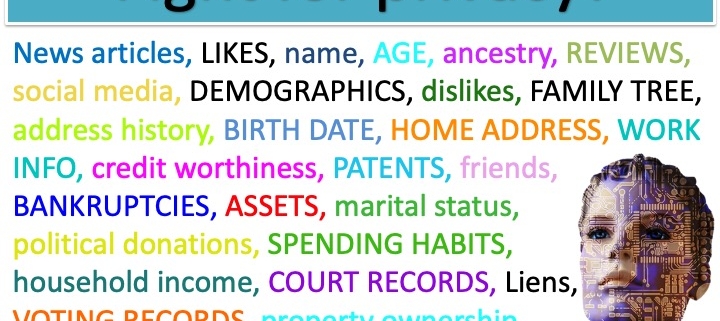
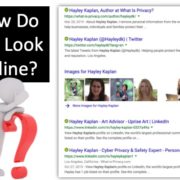

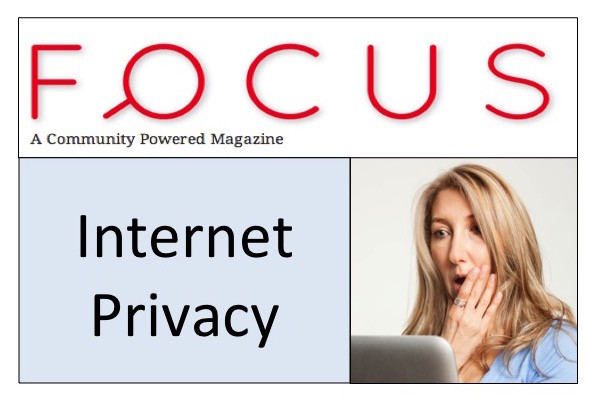
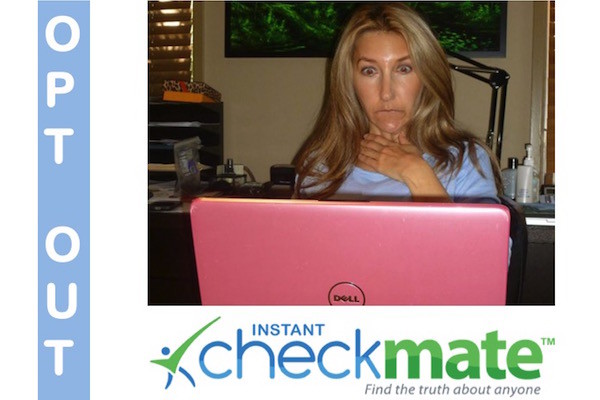




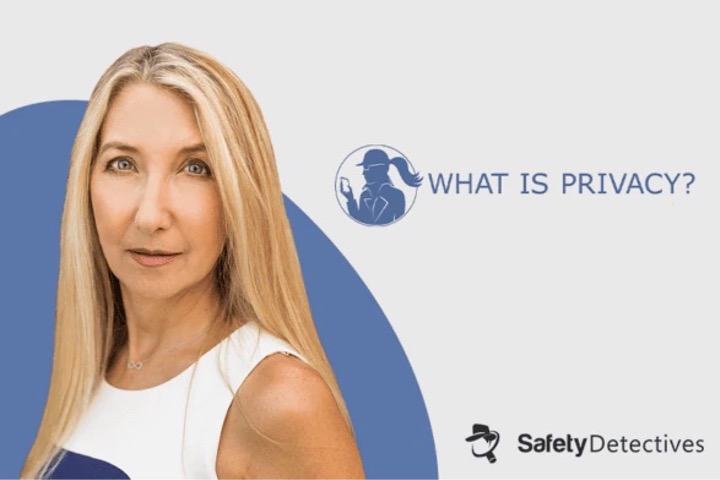
Leave a Reply
Want to join the discussion?Feel free to contribute!